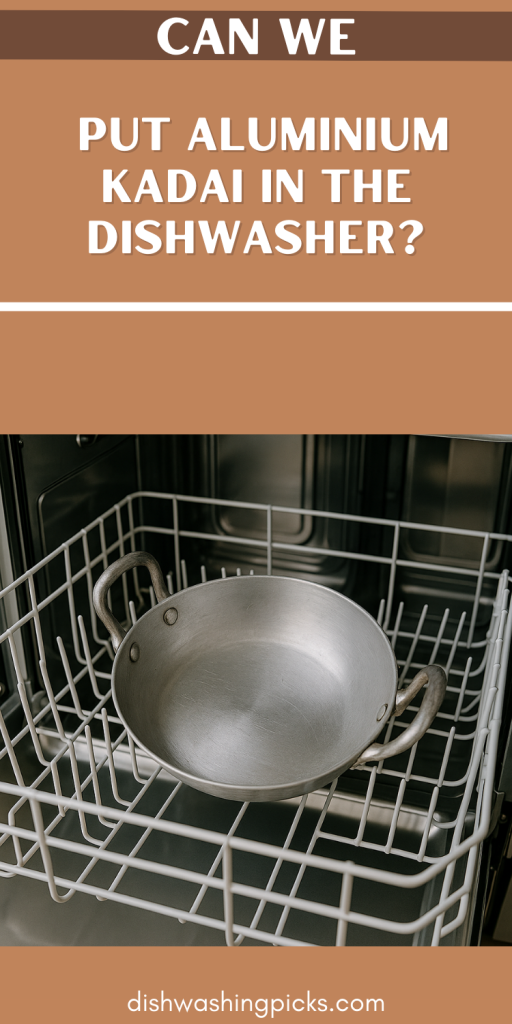
Okay, picture this: You’ve just finished cooking something mouthwatering in your trusty aluminum kadai. The food? Delicious. The cleanup? Ugh, not so much. And then, like a tiny lightbulb going off in your head, you think—“Wait… can I just throw this thing in the dishwasher?”
Fair question. Because let’s be honest, if there’s a way to dodge scrubbing that greasy pan, we’re all ears. But when it comes to aluminum and dishwashers? The answer isn’t as simple as a yes or no.
Let’s break it down.
So, can aluminum kadais go in the dishwasher?
Technically? Yes.
Should you? That’s where things get messy. Literally.
Aluminum is a bit of a diva in the kitchen. It looks tough, but it doesn’t always play well with the high heat, aggressive detergent, and jet-spray chaos going on inside your dishwasher.
What happens if you do toss it in there?
Well… your shiny, silver kadai might come out looking dull, discolored, or even chalky. Sometimes it turns dark gray. Other times it gets pitted or warped. Basically, it goes in looking like cookware and comes out looking like it aged 20 years in 20 minutes.
Why does aluminum freak out in dishwashers?
Great question.
Dishwasher detergent is super strong. Like, way stronger than the soap you use for hand-washing. It’s designed to blast off baked-on food and grease with the help of alkaline chemicals and enzymes. Which is great for plates and glasses… but not so much for soft metals like aluminum.
Here’s the sciencey part (but don’t worry, we’re keeping it chill):
- Aluminum reacts with alkaline substances, especially when mixed with water and high heat.
- This reaction causes oxidation, which is a fancy way of saying your kadai starts looking old, stained, or weirdly matte.
- And if your kadai is anodized? Same rules apply. Some anodized aluminum is dishwasher-safe, but many aren’t. Always check the label.
Basically, the dishwasher gives your kadai a chemical spa treatment it never asked for.
Okay, but what if I already washed it in the dishwasher?
No judgment here. It happens.
If your kadai came out looking dull or chalky, try this trick:
- Make a paste of baking soda and water.
- Rub it gently onto the pan with a soft cloth or sponge.
- Rinse well and dry immediately.
It won’t totally restore it to brand-new, but it can help remove some of the discoloration. Sadly, though, once the surface is damaged, there’s no magic fix. You’ll just need to give it some TLC and maybe keep it out of the dishwasher moving forward.
So what’s the best way to clean an aluminum kadai?
Honestly, the old-school way still works best:
- Let the kadai cool down before washing (no one likes warped cookware).
- Soak it in warm, soapy water for 10–15 minutes if there’s stuck-on food.
- Use a soft sponge—no steel wool, no harsh scrubbers.
- Dry it immediately after rinsing to prevent water spots or oxidation.
If it’s extra greasy or gunky, add a splash of vinegar or lemon juice to the soak. Just don’t mix vinegar and baking soda unless you enjoy science fair volcanoes in your sink.
Final verdict?
If your aluminum kadai is your go-to for everyday cooking, keep it out of the dishwasher. Trust me, it’ll last longer, look better, and thank you for it (in its own silent, cookware way).
Sure, hand-washing isn’t the most fun, but it beats replacing a ruined pan or eating off something that looks like it’s been to war.
Bottom line?
Treat your kadai right and it’ll stick with you for the long haul. Hand-wash it, give it a gentle scrub, and maybe light a candle for yourself afterward. You earned it.
